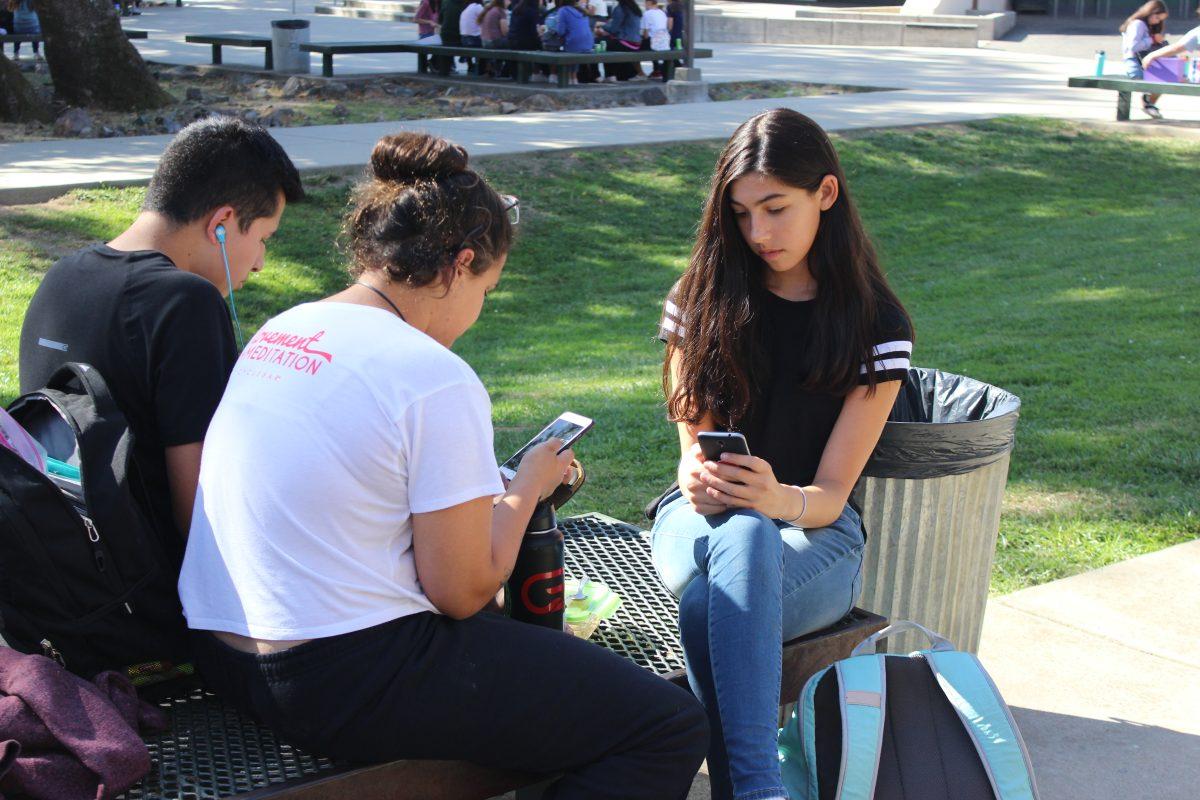Teenagers spend an average of nine hours a day looking at computer, phone or TV screens. This is equivalent to spending 126 out of the 365 days of a year staring at a screen.
Ninety-one percent of teenagers in the US have access to some type of technology. While smartphones serve many purposes like social media, taking pictures, and doing homework and schoolwork, they are also proven to cause increased anxiety, stress, insomnia and other health problems.
“For many teenagers, not using technology would mean missing out on what is happening with everyone around them,” said English teacher Karen Arcangelo. “There are actual stress related issues that come from the fear that if you are not connected 100 percent of the time, you are going to miss something major.”
Smartphones also cause a disease called Teen Tendonitis. Symptoms include back and neck pain, and potentially long-term joint problems in the thumbs from frequent texting. Smartphones, computers and televisions emit blue light, which the brain interprets as daylight. When a person uses technology before they go to sleep at night, their brain thinks that it is day, making it hard for them to fall asleep.
Technology is also linked to cancer. Thousands of studies show that the radiation from cell phones causes the formation of brain tumors. Scientists say the best way to make sure that people do not get cancer from technology is to sleep far from electronic devices and to use them as little as possible during the day.
Freshman Kathryn Parille finds the effects of technology concerning.
“I would have rather grown up when technology didn’t exist,” Parille said. “Then, we could have all grown up naturally without our phones running our lives and causing illnesses.”
“Technology is an attention deficit because lots of people I know have a phone or computer out when they are doing their homework or schoolwork,” freshman Alison Chilson said. “This multitasking seems to cause people to not put their full attention or best efforts towards their homework and instead split it up between technology and school.”
Despite the negative effects of technology, some people think that technology has changed lives.
“Modern technology has coddled some of us, but when used with some brains, it can move society forward and lead to achievements that would be impossible without it,” sophomore Maxine Walas said.
”Electronics and social media specifically are opening people up to new opportunities,” Walas said. “For example, I have an instagram account where I post drawings and art I create. Through it, I have gotten recognition from others artists and even some art schools and galleries.”
Many teachers, such as Arcangelo, are also concerned about the effect technology has on us.
“I worry that creativity is going to suffer because why not just Google it?” Arcangelo said. “The first reaction to any question is to search the Internet, and while that is good for gaining knowledge, if it is original thought we are after, that is the wrong reaction. The other aspect that worries me as a teacher is that students’ attention spans seem to be waning. Everything is ‘boring.’ Frankly, it’s the most annoying phrase that I hear.”






































